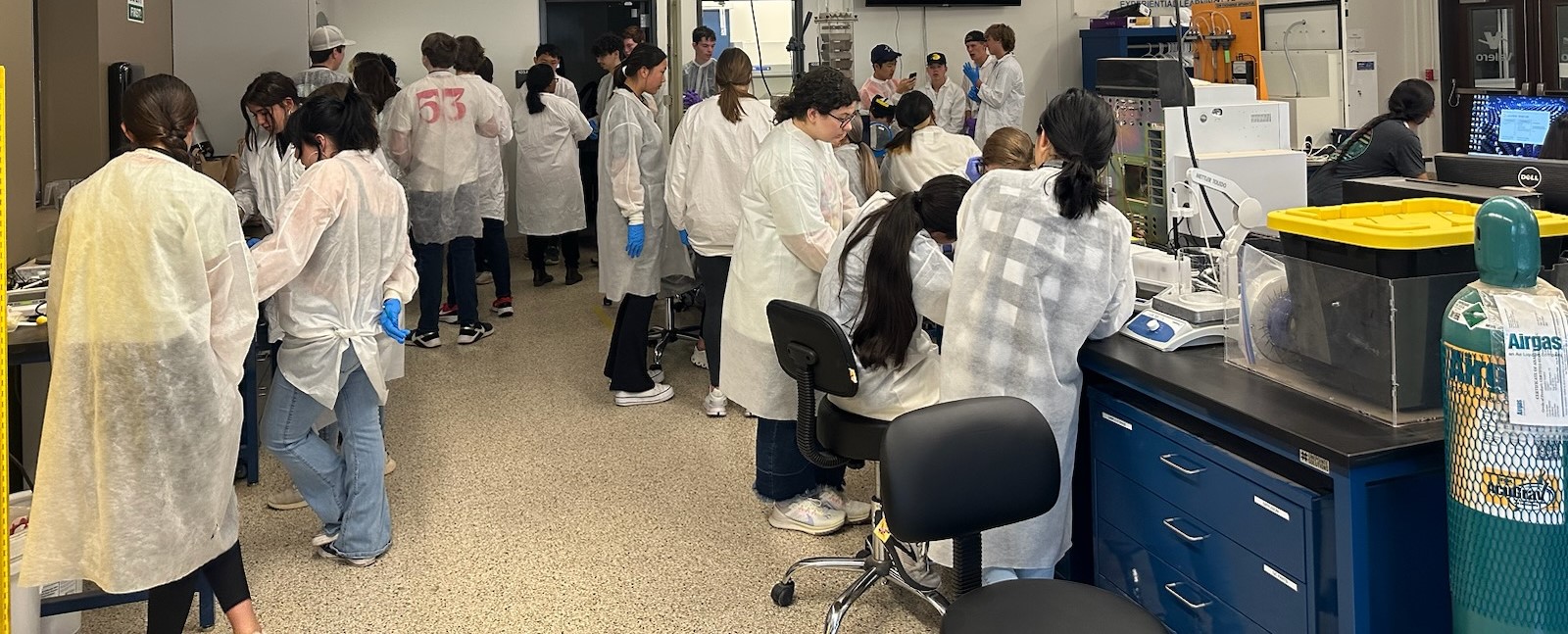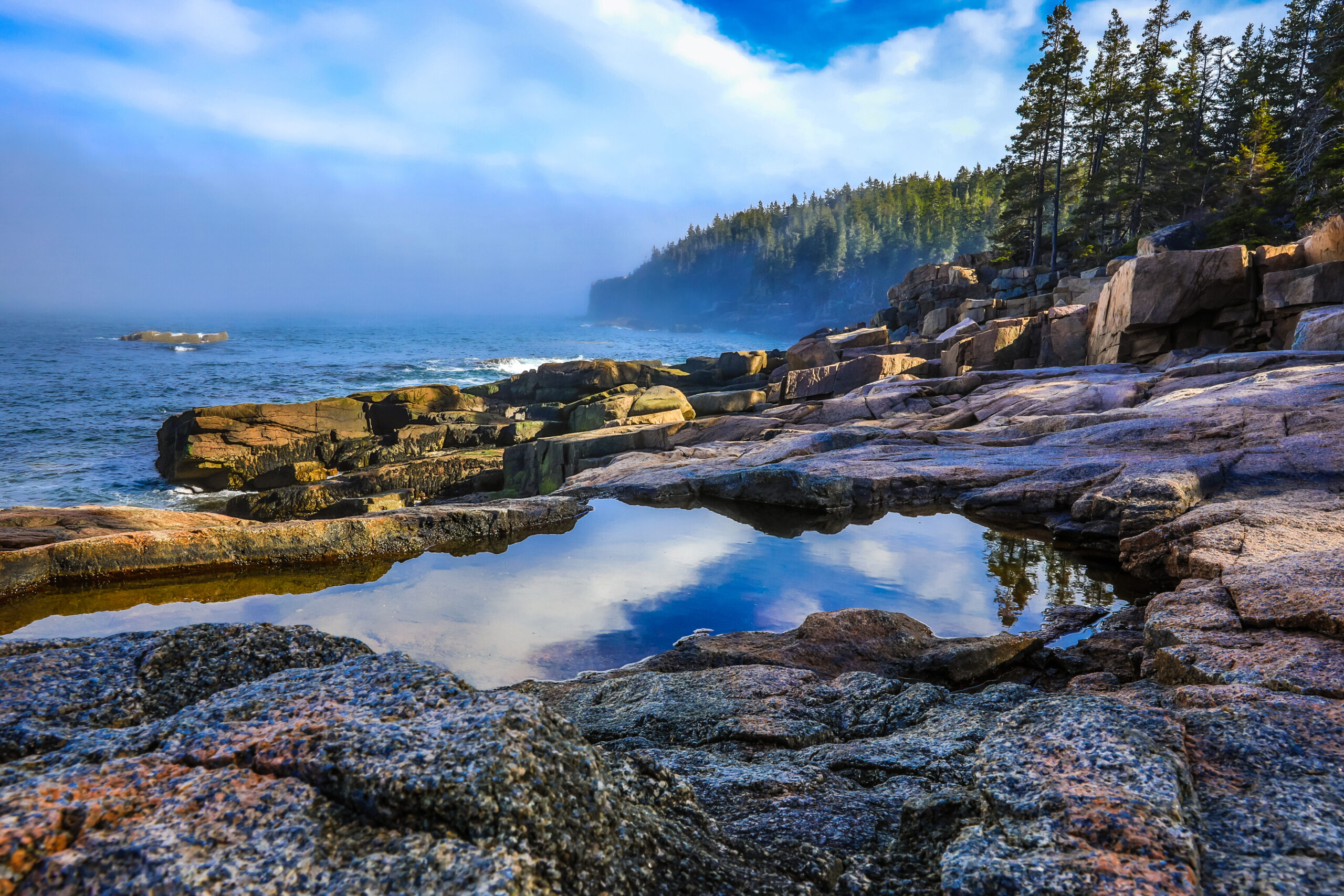
Wild Ideas: An Introduction to Biomimicry in Acadia National Park
July 31 – Aug. 3, 2024
Schoodic Institute | Winter Harbor, Maine
Master the fundamentals of biomimicry as you explore the forests, wetlands and rocky headlands of Acadia National Park during the peak of a beautiful northern summer. Learn how the emerging field of biomimicry can enhance your experiences in nature, as well as provide a new lens for sustainable innovation in your daily life or professional practice.
In this boots-on-the-ground workshop, seasoned biomimicry educators Adelheid Fischer and Megan Schuknecht will serve as field guides to Acadia’s diverse habitats and their remarkable inhabitants. Through field observations, classroom presentations, and hands-on projects, you will learn how strategies from nature can inspire solutions to a wide range of human challenges.
Here are just a few of the inspiring organisms you’ll meet up close.
Bunchberry dogwood hurls its pollen skyward at more than 800 times the velocity of
astronauts during a space launch. What can these tiny plants teach us about high-speed,
low-energy transport?
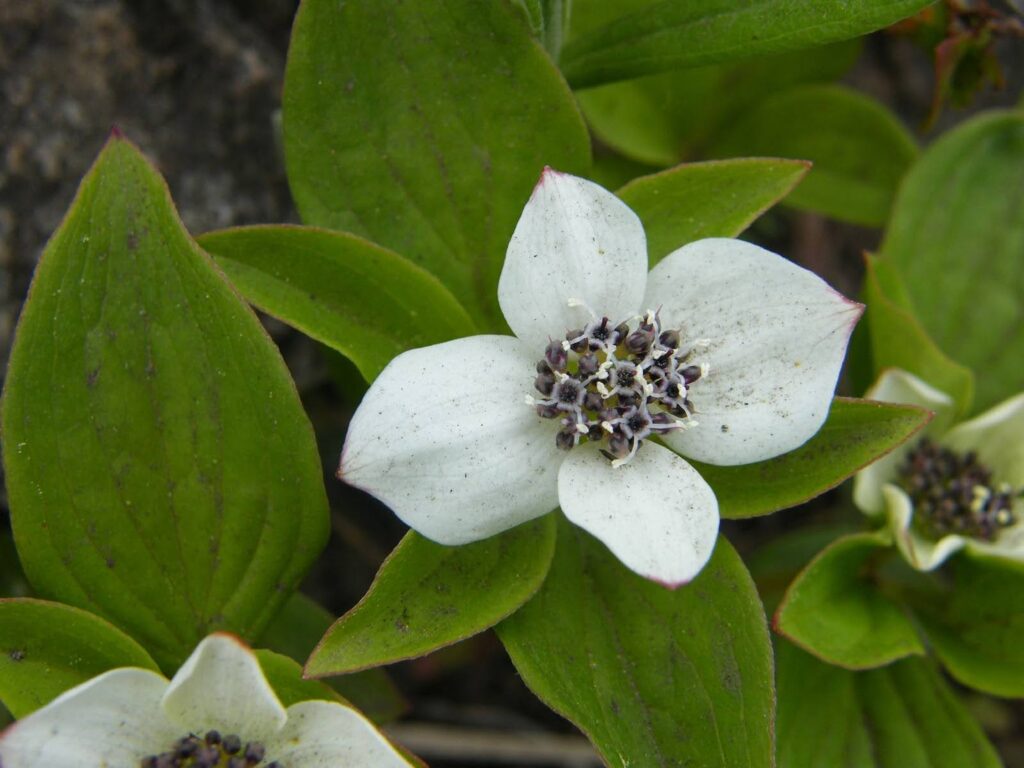
Peter Stevens CC BY 2.0 | Deed Attribution 2.0 Generic
Dam-building by beavers creates a thriving variety of new habitats across the
landscape. How can urban planners look to these ecosystem engineers for clues about
designing vital, diverse neighborhoods?
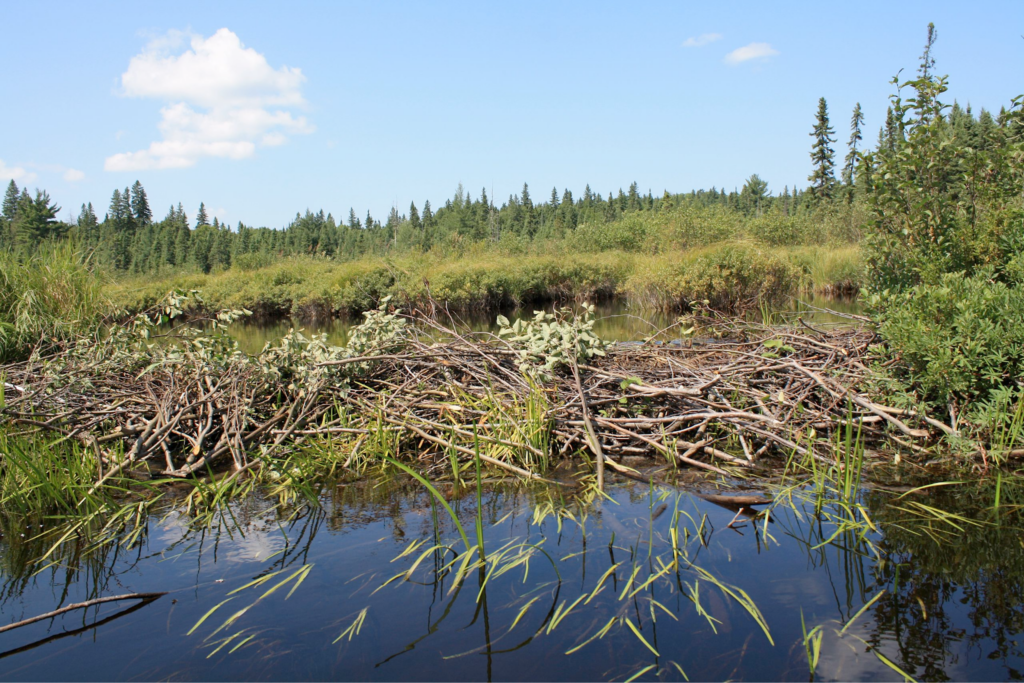
Franklin.vp CC BY-SA 3.0
Sphagnum moss can absorb up to 25 percent of its own weight in water. How can the
structure of sphagnum inspire new, super-thirsty materials?
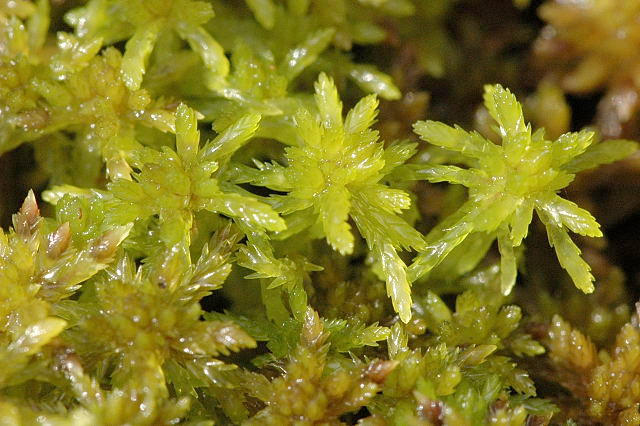
James Lindsey at Ecology of Commanster CC BY-SA 3.0
The relationships among species in a northern forest contribute to the healthy
functioning of the whole forest community. How can these interactions inspire better
classroom engagement or the design of new business plans?
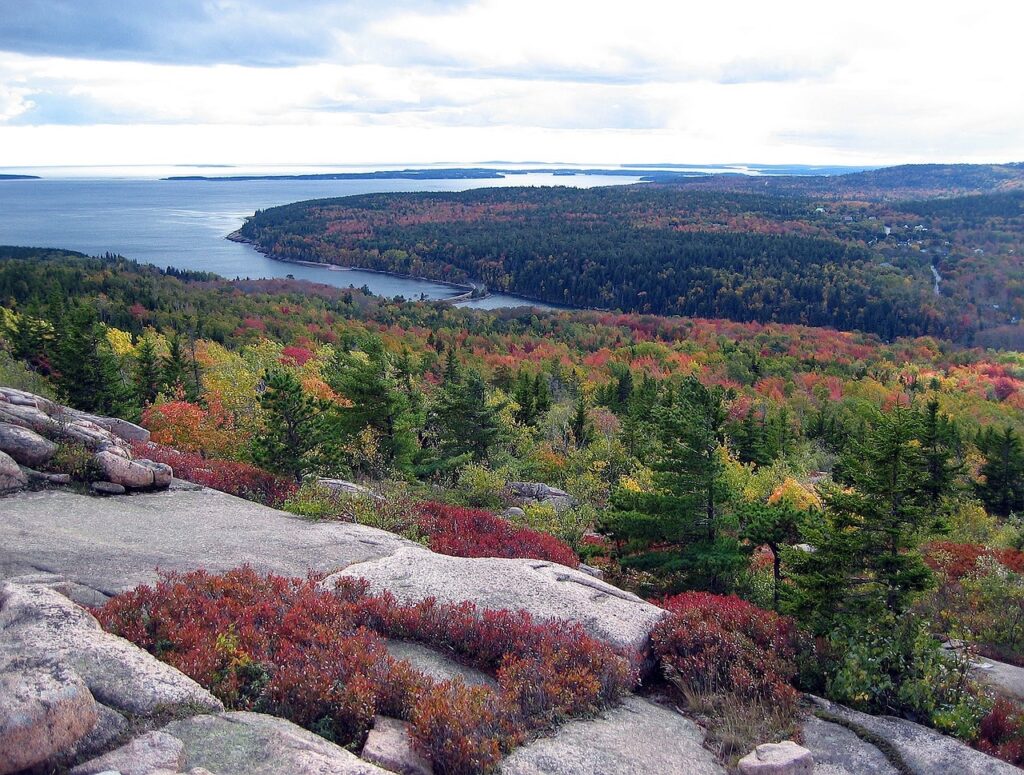
Who Should Attend:
This workshop is geared toward students and working professionals in careers ranging from education, design, architecture and engineering to public policy and business.
What’s Included:
- Three days immersed in Acadia National Park’s landscape with professionals in biomimicry education and natural history
- Presentations and hands-on projects in the fundamentals of biomimicry practice
- Lodging at the Schoodic Institute on Acadia National Park’s Schoodic Peninsula
- All meals and snacks from dinner on arrival day to lunch on departure day
- Entry fees and all transportation to sites within the park
Workshop Cost
Early-bird registration prior to April 16 – $1699
Registration after April 16 – $1899
Meet Your Instructors
Adelheid Fischer is a writer who focuses on natural history, ecology, and environmental history. She has written for numerous publications and is the coauthor of Valley of Grass: Tallgrass Prairie and Parkland of the Red River Region, winner of a Minnesota Book Award for Nature Writing, and North Shore: A Natural History of Minnesota’s Superior Coast. In 2014 she received the Ellen Meloy Desert Writers Award. Fischer was a 2023 artist in residence at Acadia National Park.
Fischer is a former codirector of InnovationSpace, a sustainable product-development program at Arizona State University. From 2006 to 2016, she led the program’s biomimicry initiative, which introduced students to the use of biology as a means of sustainable innovation in design, business and engineering. As the former assistant director of ASU’s Biomimicry Center, Fischer also initiated several biomimicry-based projects including “Designed to Move: Seeds That Float, Fly or Hitchhike through the Desert Southwest” and NatureMaker, an active learning library where hands-on explorations of nature inspire sustainable innovation. The project won ASU’s 2021 President’s Award for Innovation.
Fischer has cotaught biomimicry traveling studios for ASU graduate students in design and architecture in places as diverse as Panama, Switzerland, the Galapagos and Hawaii. She is a faculty affiliate in ASU’s Design School and an Affiliate Global Futures Scholar in the Julie Ann Wrigley Global Futures Laboratory at ASU. You can read more about her work at adelheidfischer.com.
Megan Schuknecht is a senior educator with The Center for Learning With Nature. A biologist by training and an interdisciplinary generalist in practice, Megan has taught intensive biomimicry workshops around the world, from Montana to Mexico, Scotland, South Africa, Denmark, and many places in between. She helps learners understand the practice of biomimicry through the deep exploration of nature and has developed biomimicry curriculum and tools for all age levels. While working for the Biomimicry Institute, Megan was a founding team member of AskNature, an online portal to nature’s strategies for sustainable design. In addition to serving as the Institute’s director of university education for many years, in her role as senior biomimicry professional she worked with dozens of companies to find biological inspiration for solving design challenges, including Unilever, Ford, P&G, Patagonia, VF and Autodesk, among others. Most recently, she collaborated with the Oregon Museum of Science & Industry (OMSI) on Wild Creativity, a bilingual traveling biomimicry exhibit currently on view at OMSI.
Additional questions? Email: mschuknecht@gmail.com
“Wild Ideas” is a collaboration with The Center for Learning with Nature.


